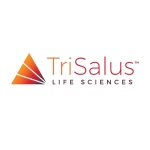- Initiating clinical trials to evaluate investigational toll-like receptor 9 agonist, SD-101, in patients with uveal melanoma liver metastases followed by three additional indications.
- Aspiring to overcome the challenges of treating patients with solid tumors through our multi-pronged approach to stimulate the immune system and deliver immuno-oncology therapies directly to the site of the disease, with the goal of improving the therapeutic index
- Working to redefine the treatment of hard-to-treat solid tumors in the liver or pancreas by combining TriSalus’ proprietary FDA cleared intravascular, regional drug delivery technology for liver and pancreatic infusion with investigational SD-101 and standard of care therapy
DENVER & CHICAGO–(BUSINESS WIRE)–#TollLikeReceptor—TriSalus Life Sciences (TriSalus), an emerging immuno-oncology company committed to transforming outcomes for patients with solid tumors, announced today its therapeutic clinical development strategy following the successful acquisition of SD-101, an investigational IND-ready immunotherapy, from Dynavax Technologies on August 3, 2020.
SD-101 is an investigational toll-like receptor 9 (TLR9) agonist that has been tested in Phase 2 clinical trials for advanced cutaneous melanoma and head and neck cancer, evaluating efficacy, safety, and the ability to increase responsiveness to checkpoint inhibitors in PD-L1 negative tumors. By combining SD-101 with TriSalus’ proprietary FDA cleared, drug delivery technologies, TriSalus will deliver the agent into the local vasculature of solid tumors. The Company intends to begin evaluating SD-101 in patients with uveal melanoma liver metastases followed by testing in patients with pancreatic ductal adenocarcinoma and colorectal cancer liver metastases. In addition, a separate program for locally advanced pancreatic ductal adenocarcinoma is in progress.
Mats Wahlstrom, Chairman of TriSalus Life Sciences, commented, “Our strategy is to develop a portfolio of immuno-oncology therapeutics and innovative infusion technologies to solve the two key reasons for poor outcomes in pancreatic and liver solid tumors ─ immunosuppression and low therapeutic index. The recent acquisition of SD-101 is a strong start to our therapeutics portfolio strategy. We plan to deploy multiple approaches with SD-101 by testing it clinically in a range of liver and pancreatic cancers for which few options currently exist.”
Mary Szela, Chief Executive Officer and President of TriSalus Life Sciences, added, “SD-101 represents an important component of the clinical program, studying the safety and effectiveness on activation of the immune system to help attack solid tumors. Building on the acquisition of our first therapeutic candidate, we will seek other immuno-oncology products which could benefit from being delivered directly into the disease site through acquisitions, licenses, and partnerships.”
Steven Katz, MD, Chief Medical Advisor of TriSalus and Chairman of its Scientific Advisory Board, said, “As an investigational TLR9 agonist, SD-101 has shown promising immunostimulatory capabilities that promote anti-tumor activity in Phase 1b/2 clinical studies.1 By using Pressure-Enabled Drug Delivery™, (PEDD™), for intravascular, regional, rather than systemic delivery, our intent is to increase SD-101’s therapeutic index. Our clinical development program will initially evaluate SD-101 delivered with PEDD for treatment of uveal melanoma liver metastases. Concurrently, we will develop three additional programs assessing a combination of SD-101 and other immuno-oncology agents delivered with PEDD.”
Richard Carvajal, MD, Director of Experimental Therapeutics and Director of the Melanoma Service at Columbia University Medical Center, concluded, “Based on the biology of uveal melanoma and the clinical results in cutaneous melanoma, delivery of TLR9 agonists into the liver has been quite challenging. I am excited about studying the combination of TriSalus’ delivery technology with SD-101 in uveal melanoma liver metastases.”
The Company reported that it will seek a meeting with the Food and Drug Administration to share study designs and clinical plans for the initiation of human clinical studies in uveal melanoma liver metastases, the most common primary intraocular malignancy in adults, representing approximately 85% of all ocular melanomas.2
TriSalus was formed to investigate treatments to help stimulate the immune system to overcome immunosuppression by delivering a combination of immuno-oncology therapies directly to the site of disease. Trisalus is researching this multi-pronged approach to reprogram the immunosuppressive tumor microenvironment, harness the power of tumor killing agents, and deliver these therapies directly to the tumor through its Pressure-Enabled Drug Delivery (PEDD) approach. The Company has identified validated, IND-ready targets to acquire through license agreements, collaborations, or joint ventures. TriSalus is initially focused on the goal of successfully treating intractable solid tumors including uveal melanoma liver metastases and pancreatic cancer.
About SD-101
SD-101 is an investigational proprietary short sequence of synthetic deoxyribonucleic acid (DNA) which binds to the Toll-Like receptor 9 (TLR9) found on suppressive immune cells including myeloid-derived suppressor cells and antigen presenting cells.3 SD-101 has been evaluated in numerous clinical studies to assess safety and efficacy. Investigational studies suggest responsiveness to checkpoint inhibitors in PD-L1 negative tumors as well as inducing an influx of cytotoxic T cells and interferon gamma production.1
SD-101 will be evaluated in multiple visceral organ tumor types to assess its safety and activity via PEDD as well as in combination with other immunotherapies and modalities. For more information on SD-101 clinical trials that are currently recruiting patients, please visit www.clinicaltrials.gov.
About Pressure-Enabled Drug Delivery™ (PEDD™)
Pressure-Enabled Drug Delivery (PEDD) approach with SmartValve™ technology features a self-expanding, nonocclusive, one-way valve which can infuse therapeutics into solid tumor vasculature 4 The FDA cleared SmartValve devices have been shown to deliver more therapy into the tumor while preventing embolic reflux5.
About TriSalus Life Sciences
TriSalus Life Sciences is a revenue generating, emerging immuno-oncology company dedicated to developing immunotherapy treatments for liver and pancreatic tumors using our novel delivery technologies to improve patient outcomes. TriSalus intends to pursue multiple solid tumor indications with investigational SD-101 and acquire other immuno-oncology agents to combine with our proprietary Pressure-Enabled Drug Delivery™ technology for the administration of therapeutics intravascularly into visceral organ solid tumors. In combination with checkpoint inhibitors, our focus is to reprogram the dominant immunosuppressive cell population in liver and pancreatic tumors. This innovative approach in development has the potential to leverage multiple mechanisms that can work together with the goal to overcome inherent immune suppression within the solid tumor microenvironment. For more information, please visit www.trisaluslifesci.com.
References
1Ribas, A., et al. SD-101 in Combination with Pembrolizumab in Advanced Melanoma: Results of a Phase Ib, Multicenter Study. Cancer Discov. 2018 Oct;8(10):1250-1257.
2Carvajal, R., et al. Metastatic Disease from Uveal Melanoma: Treatment Options and Future Prospects. Br J Ophthalmol. 2017 Jan; 101(1): 38–44.
3 NCI Drug Dictionary, Definition of TLR9 Agonist SD-101, National Cancer Institute Accessed June 17, 2020.
4Data on file (CEA 001 trial) Study Design: Single patient infusion. Pressure continuously monitored during initial positioning at target site, deployment of the PEDD™ device, and infusion of 3 cc saline bolus. TriSalus™ Life Sciences, 2019.
5Titano et al Study Design: A retrospective, single-center study included 88 treatment-naive patients with solitary HCC tumors <6.5 cm who underwent treatment utilizing either SIS (n = 18) or standard EH microcatheters (n = 70). Twenty-three patients (5 SIS, 18 EH) received a liver transplant during the study, with 1 SIS and 6 EH patients excluded from the tumor necrosis analysis for receiving subsequent therapies prior to transplant. A pathologist performed a blinded review of the liver explant specimens to assess tumor necrosis and treatment distribution. Pathological analysis of explanted livers showed greater concentrations of microspheres within the tumor relative to the surrounding tissue in SIS explants (88.7 ± 10.6%) versus the EH explants (55.3 ± 32.7%) (p = 0.002). Titano JJ, et al. Cardiovasc Intervent Radiol. 2019;42:560-568.
Contacts
TriSalus Media
Emmie Twombly
Media Specialist
LaVoieHealthScience
(857) 389-6042
etwombly@lavoiehealthscience.com
TriSalus Investor
Lisa DeScenza
Vice President, Integrated Communications
LaVoieHealthScience
(978) 395-5970
ldescenza@lavoiehealthscience.com






